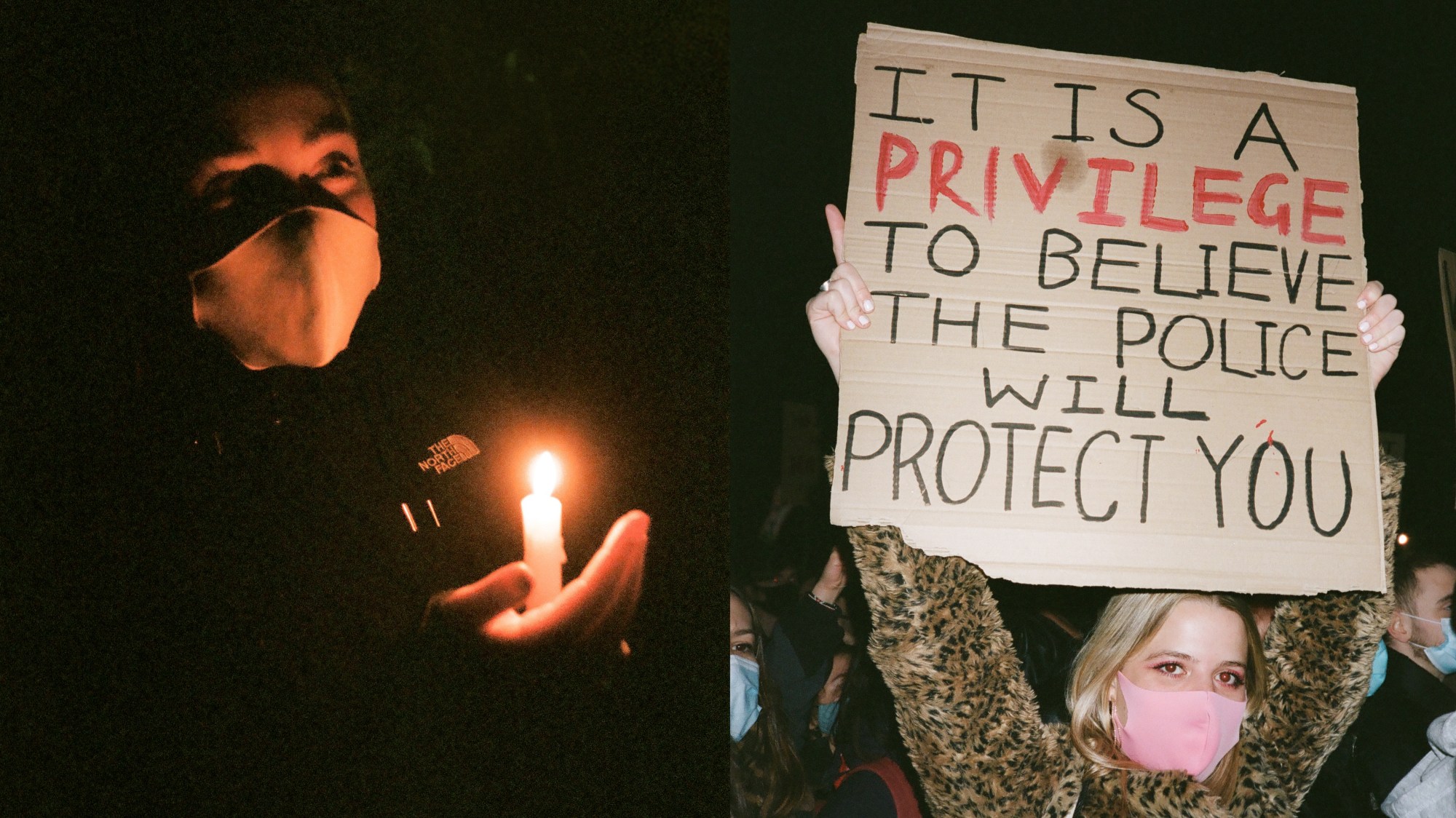On Saturday afternoon, photographer Nora Nord travelled to Clapham Common in south London and joined the thousands protesting male violence against women in the wake of Sarah Everard’s death. As news of a police officer’s arrest in connection with Sarah’s murder coalesced with a government announcement that the demonstration was ‘cancelled’, frustration and sadness quickly turned to total dismay. By the late evening, images of the police pinning masked protestors to the floor confirmed what so many know to be true: the call is coming from inside the house.
In the days since, commentators, politicians and celebrities have condemned the actions of the police officers in Clapham, with many reaffirming the belief that the police are a prejudiced institution not fit for purpose. Yet many powerful people have not condemned their actions. Meaningless, out of touch solutions to the epidemic of violence against women at night have begun circulating — such as plain-clothed officers in nightclubs — while the government has pressed forward with a bill that makes particular aspects of the Coronavirus Act permanent. This includes an expansion of the infamously discriminatory stop and search practise, and permission to penalise non-violent protesters, something that’s happening under the guise of breaking up gatherings which “[pose] a considerable risk to people’s health” in the past few months. The vote takes place later today.
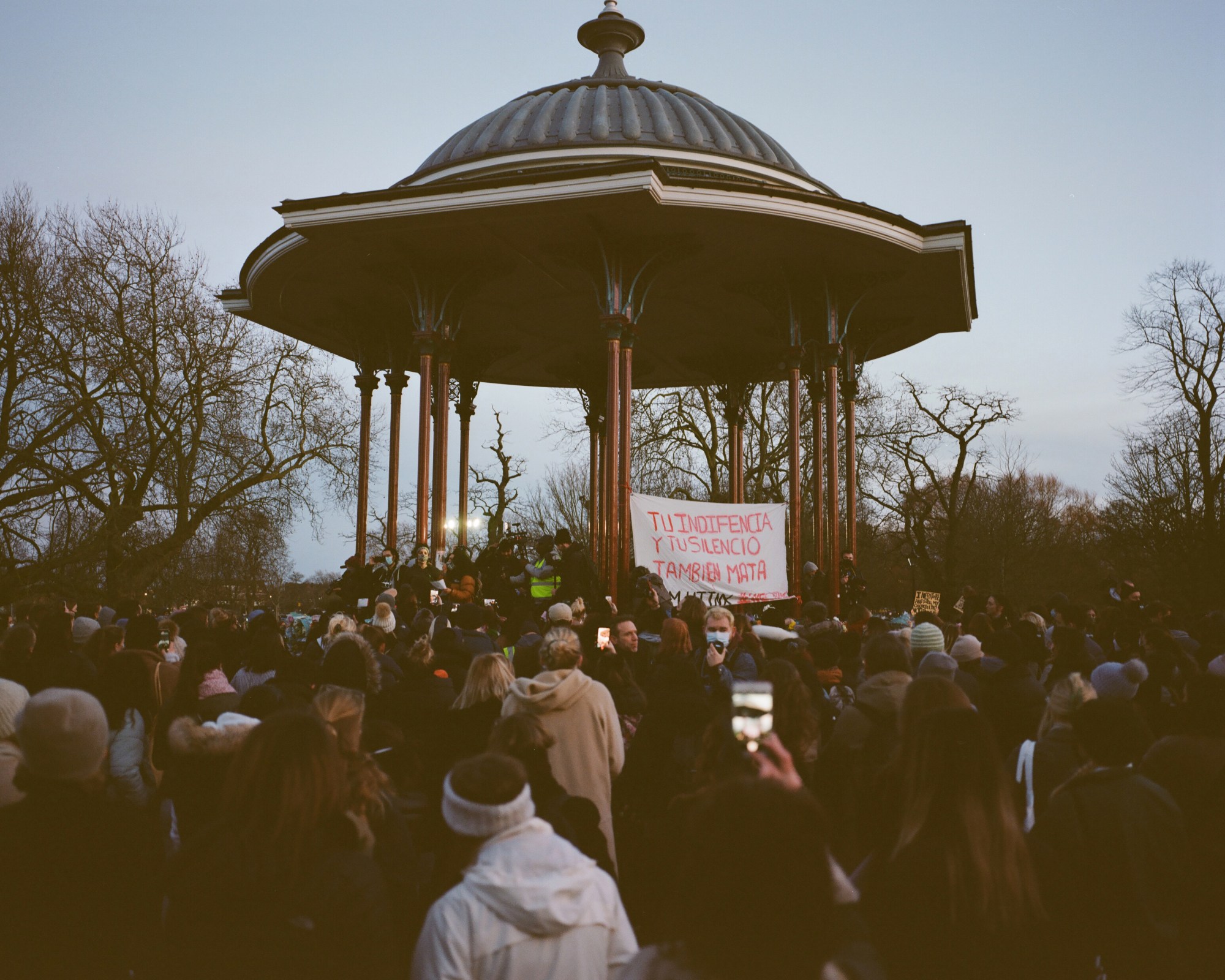
Nora speaks of a mixture of emotions felt since the first demonstration took place. “At the beginning, there was a sombre but uplifting mood. We were chanting and demanding our rights, the sun was setting, and it felt amazing to be surrounded by so many people again. However, the reason why we were there never left the atmosphere, and there was a looming threat in the air. This was a protest and a vigil. At first, the police were standing in the outskirts paying attention, but then they came from out of nowhere and stormed the entire central pagoda. The tension kept rising, and people were ready for a fight. Women were screaming in the smug faces of police officers. I was standing a metre away from a male police officer pinning a woman down on the ground. When he saw the number of cameras filming him, he released her and violently shoved her into the crowd.
“The police took the microphones from the women and started making arrests. They placed themselves like a military formation around the central ring where flowers were laid. Most of the police were middle-aged men, the sort of men you cross the street when you see them on your walk home at night. By the time the arrests were made, and our candles had been lit, our respects paid and our hearts were heavy. The ground was teeming with police, and they told people to disperse. We walked through the mud out of the no coverage zone to our separate tube stations. It didn’t feel like a win. I peed behind a bush in the woody area of the park and tried to ignore the threat of every passing man.
“I think, like many people, I am sad this protest is happening now. I think @lookingformothermax said it best when she wrote ‘I’ve been thinking about how it has taken a white woman to lose her life for white people and the majority to realise that the police are an awful institution… I think about the likes of Belly Mujinga, Shukri Abdi and Blessing Olusegun. Women and a young girl who had their lives taken early and the police didn’t do what they are meant to do.’”
Sign Netpol’s petition that demands the government drop the PCSC Bill, and the National Police Chiefs’ Council adopt a charter on the Freedom to Protest here.
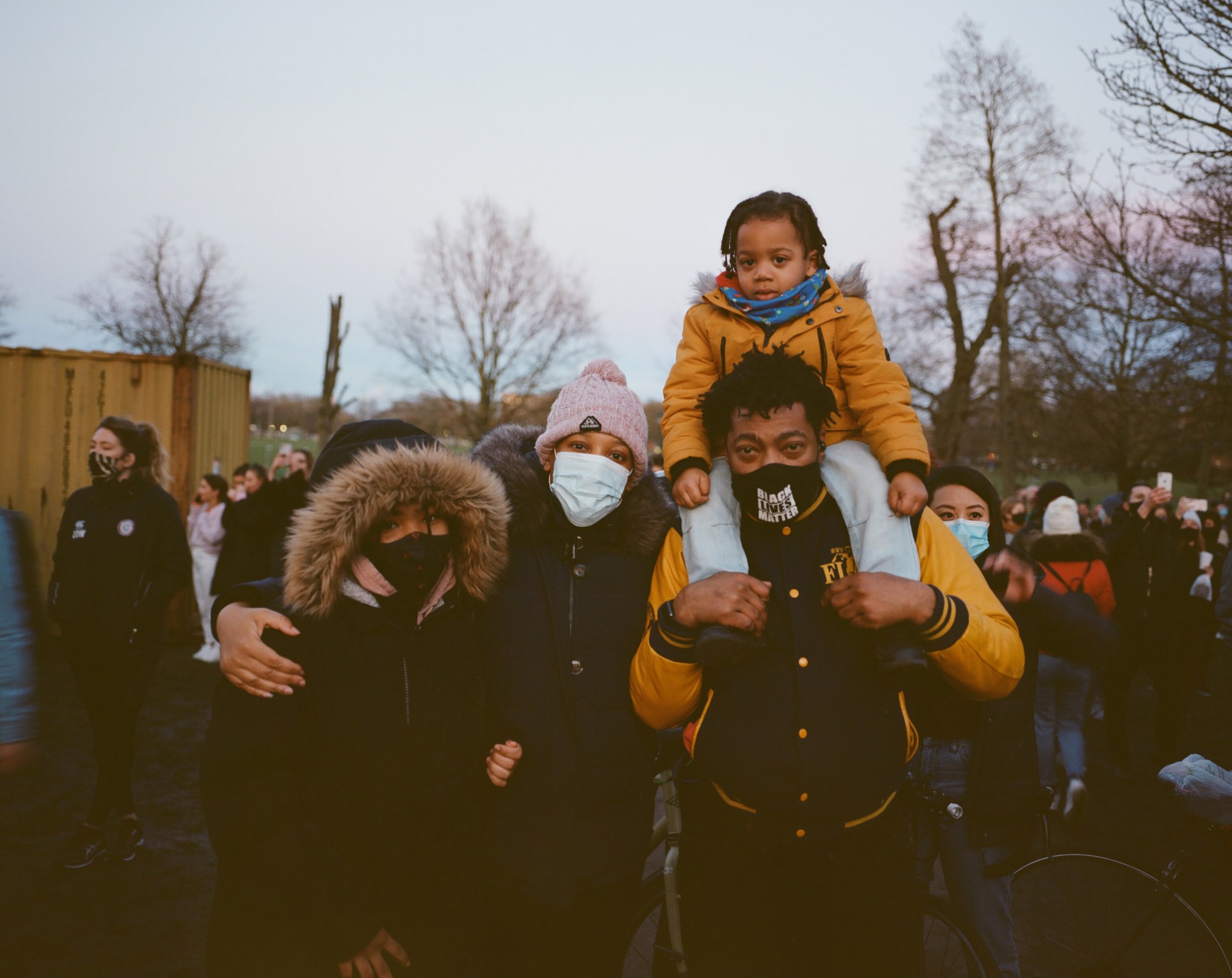
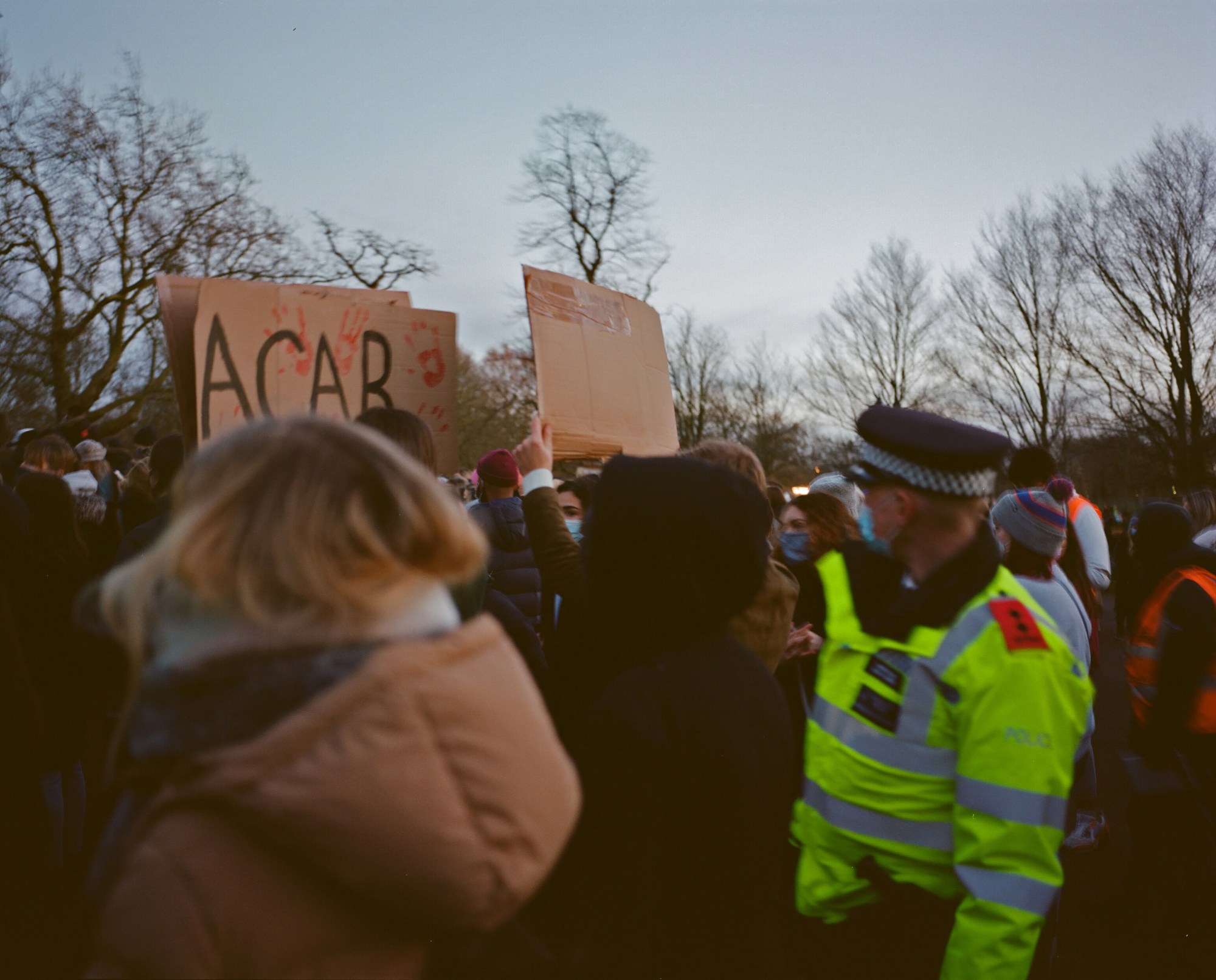
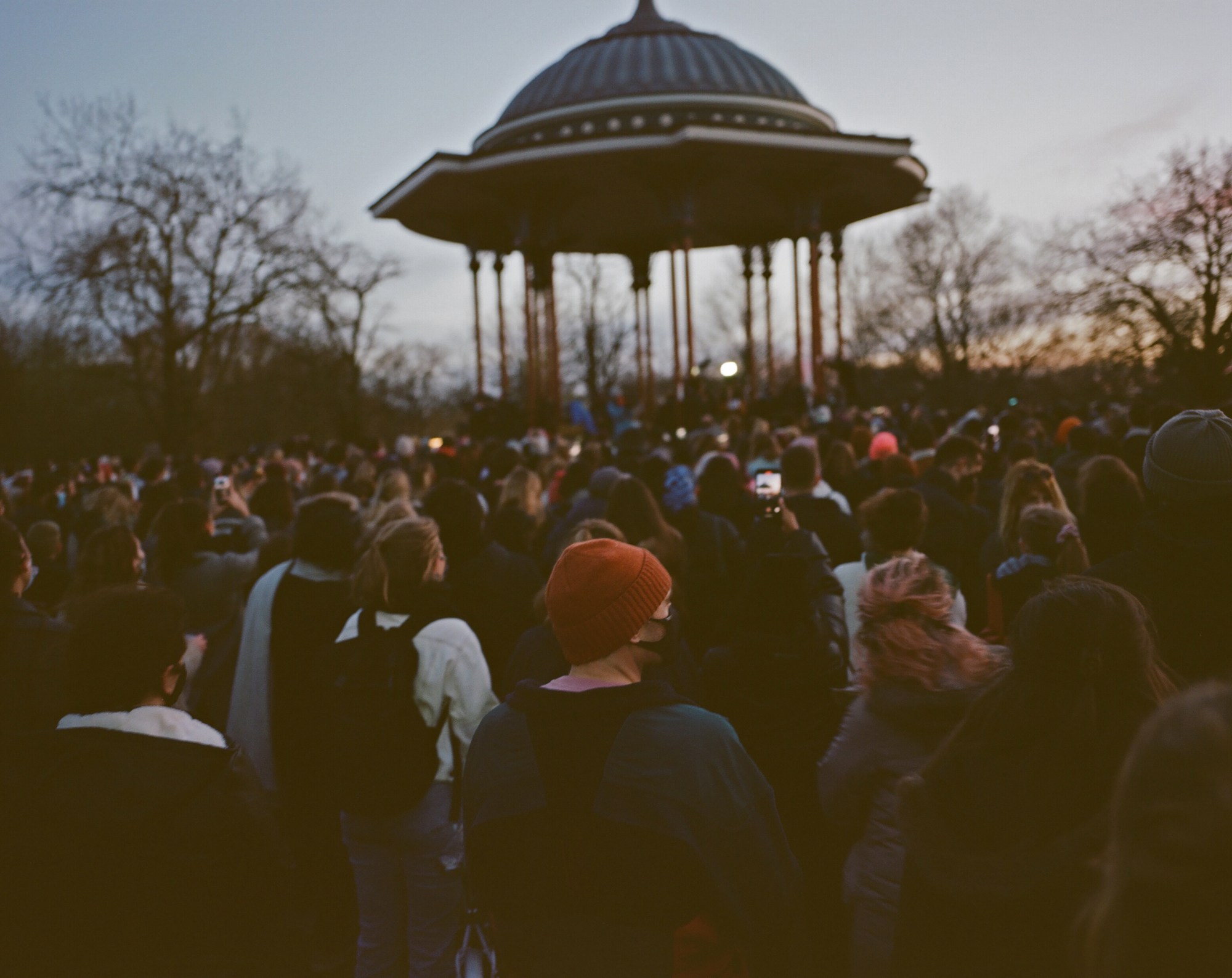
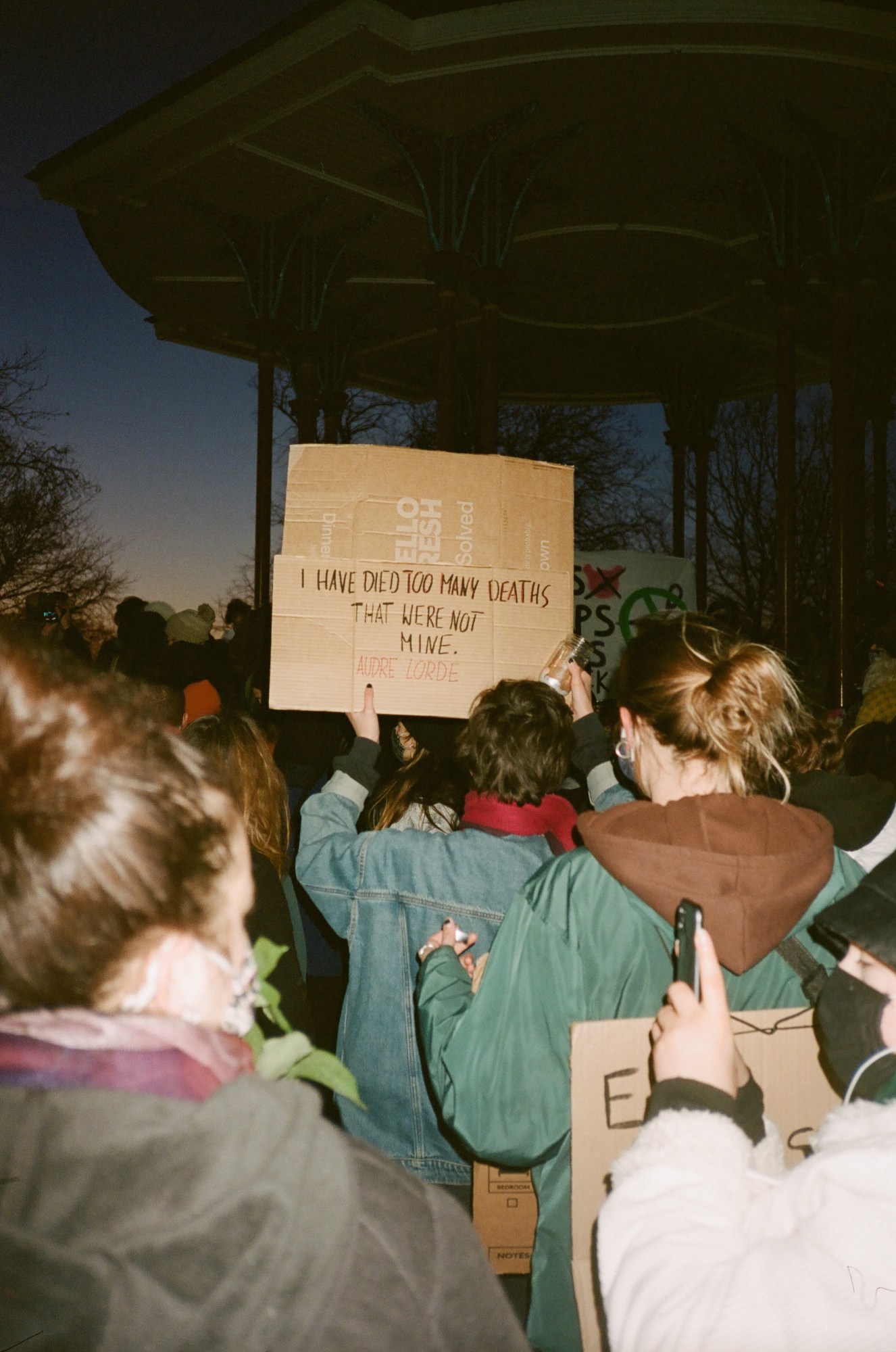
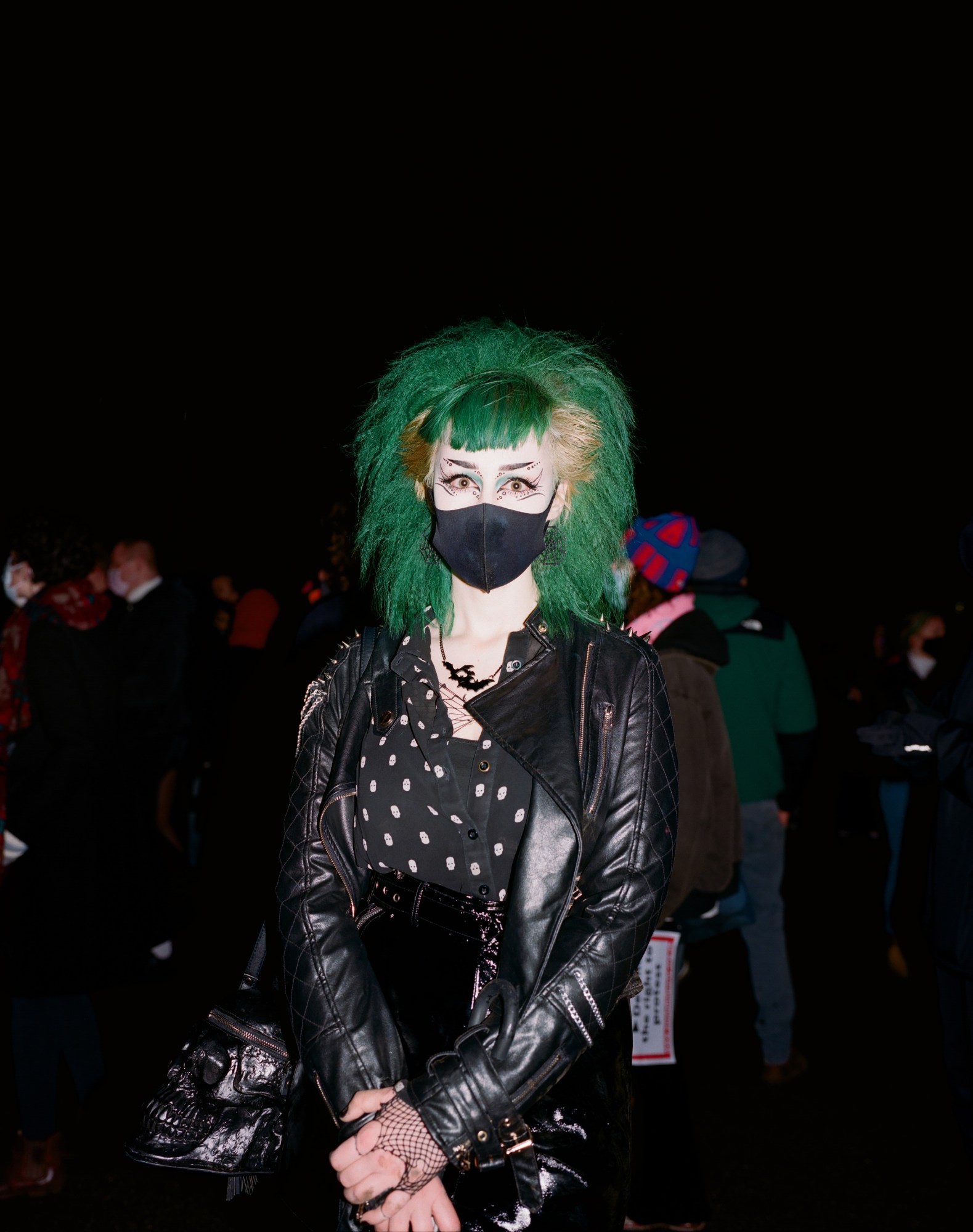
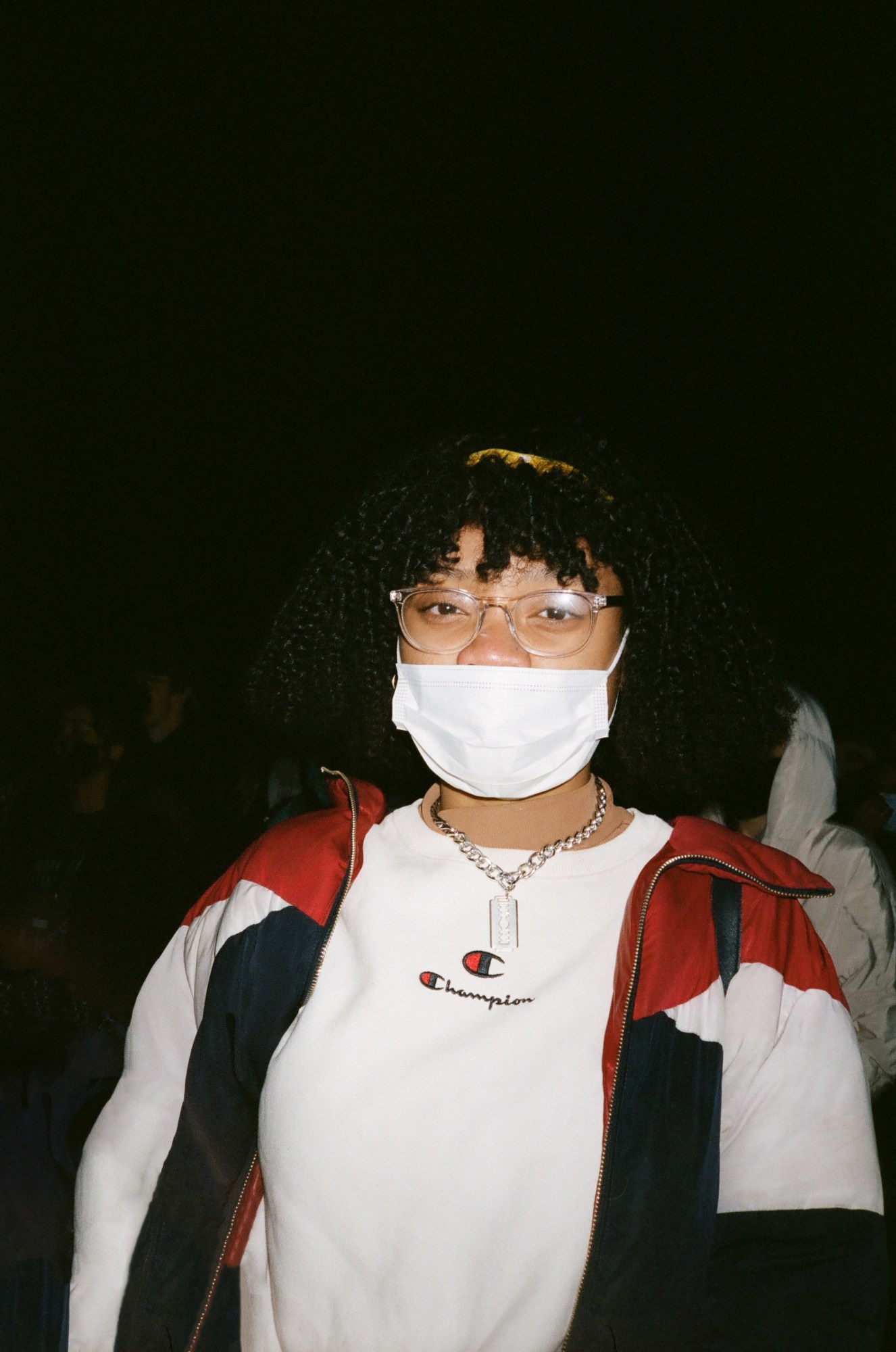
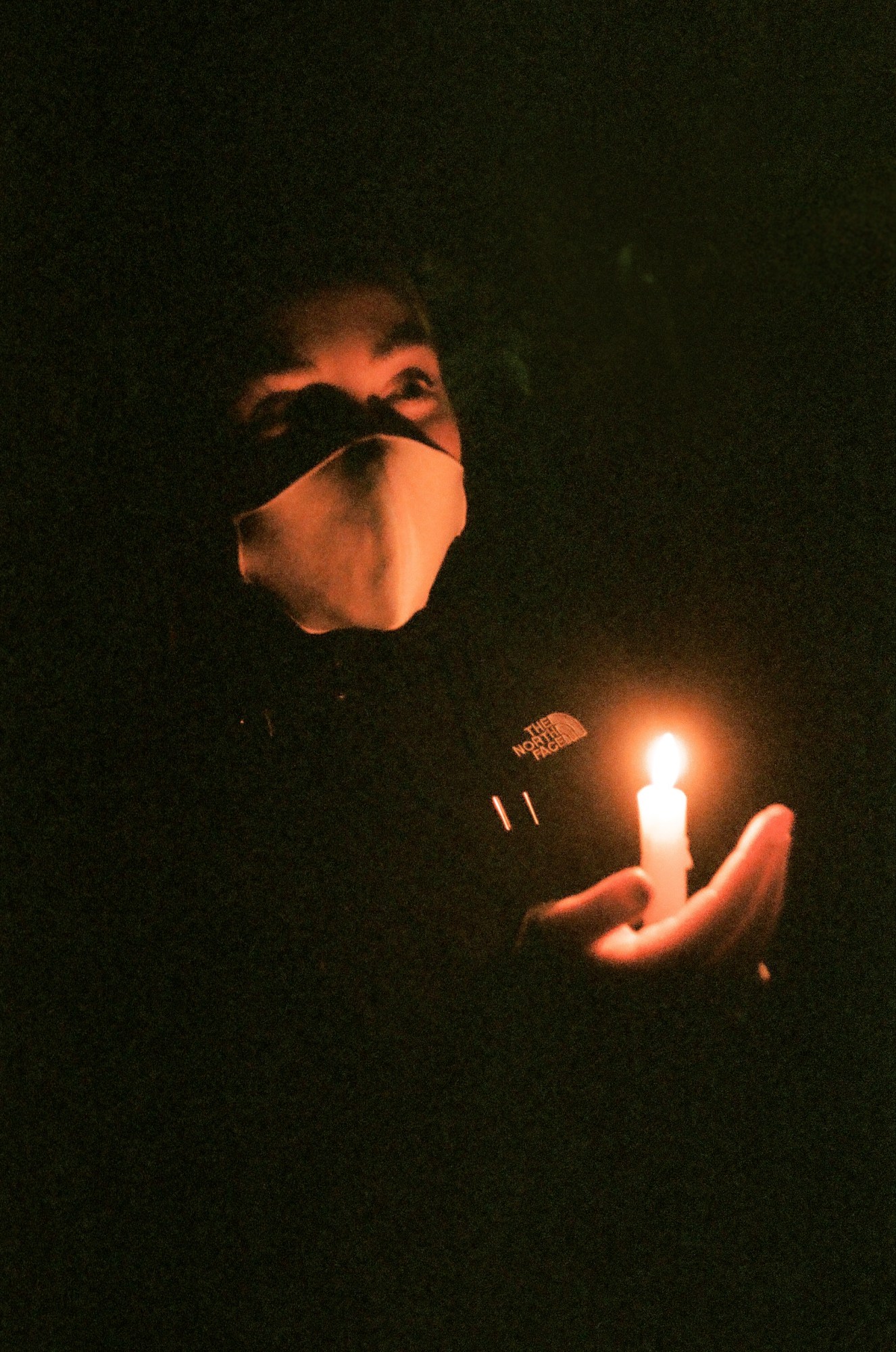
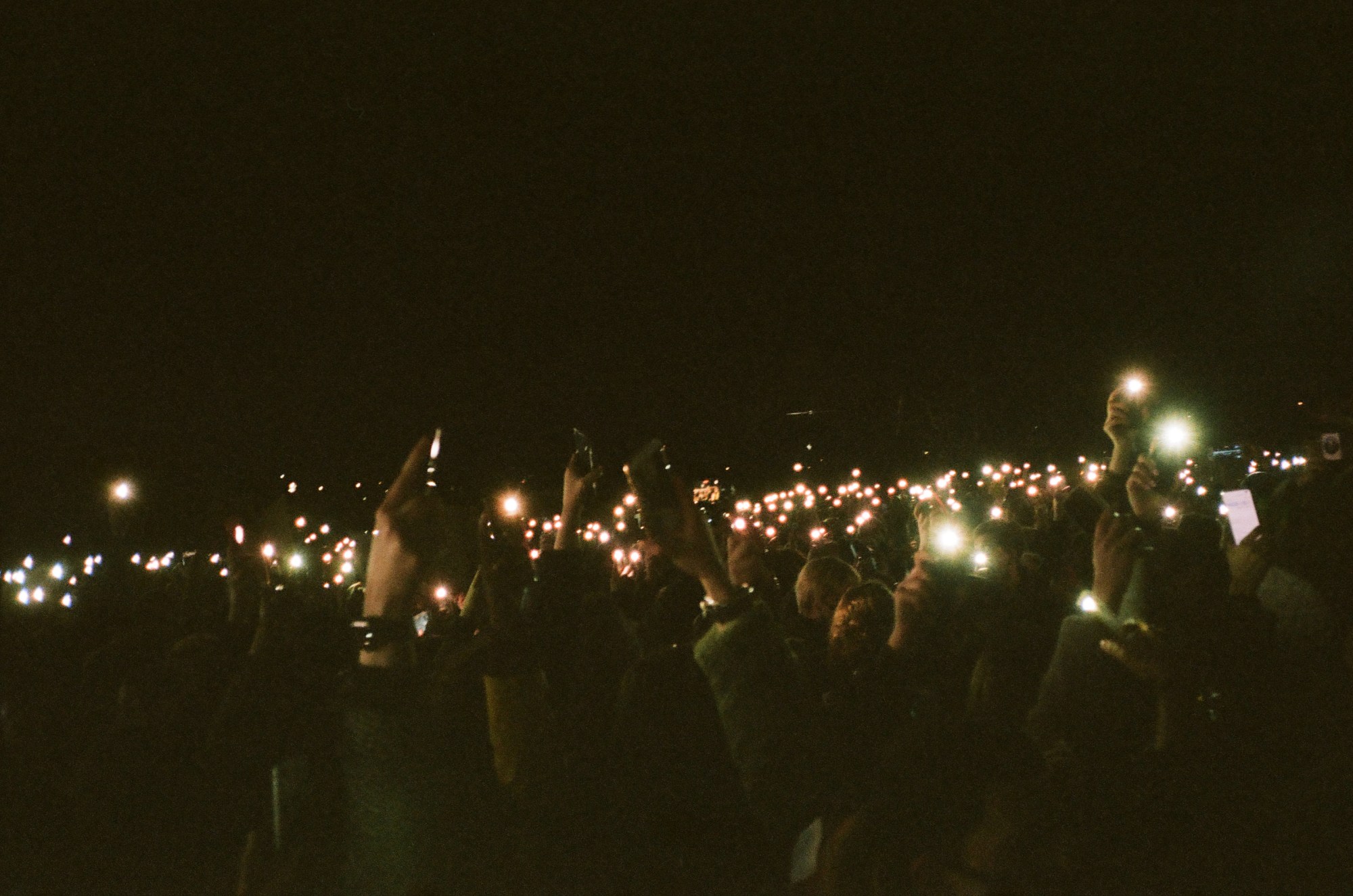
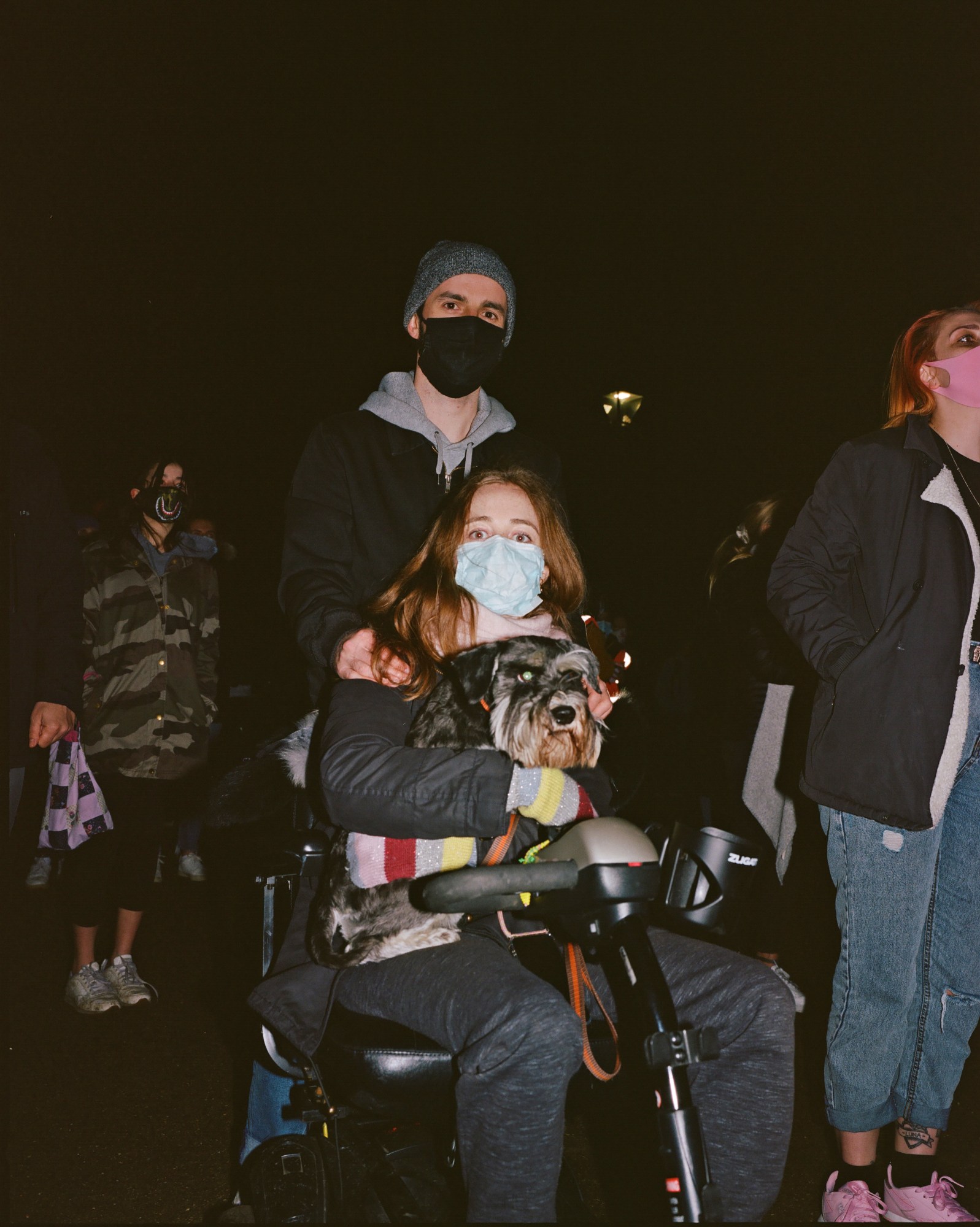
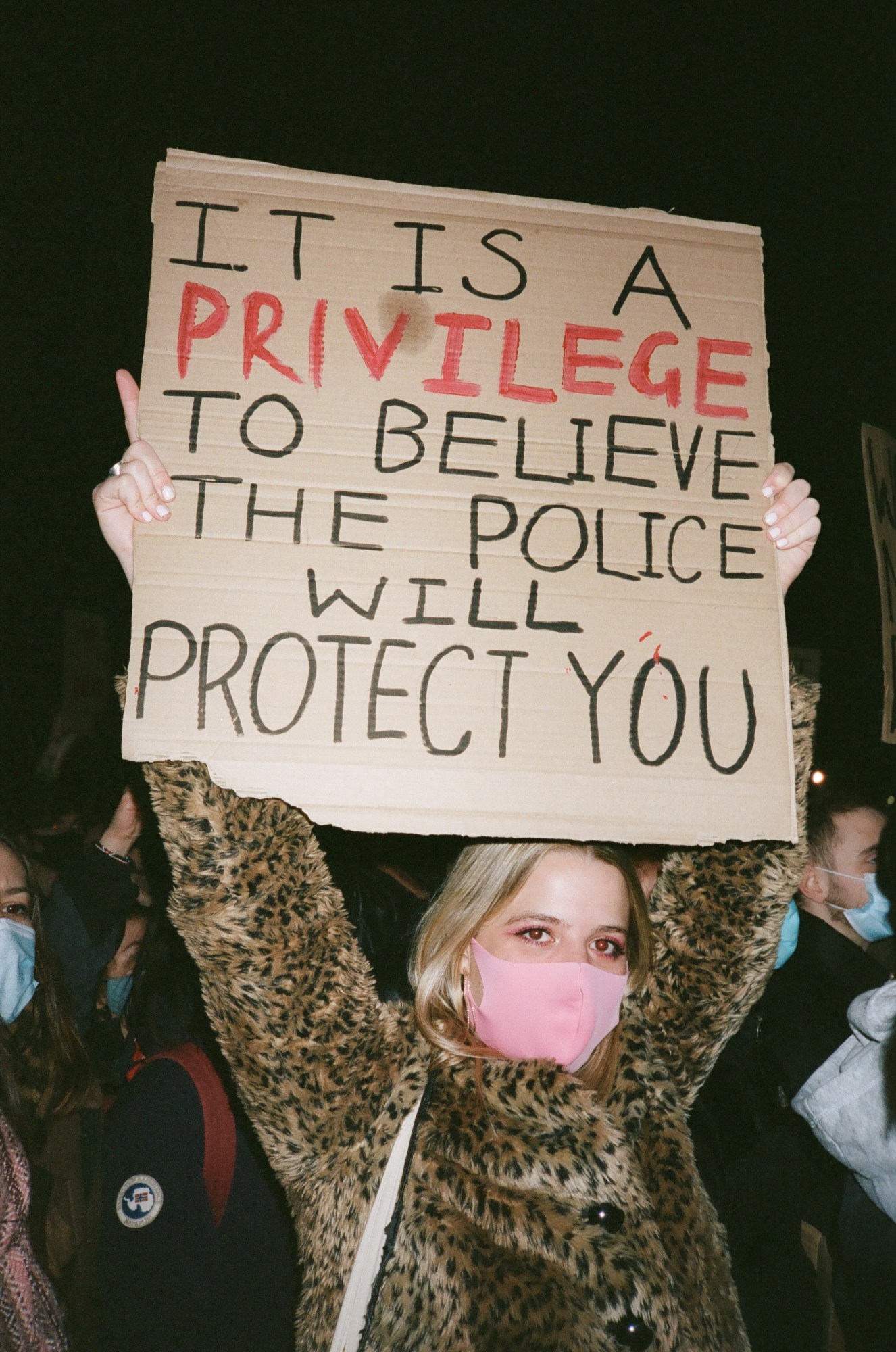
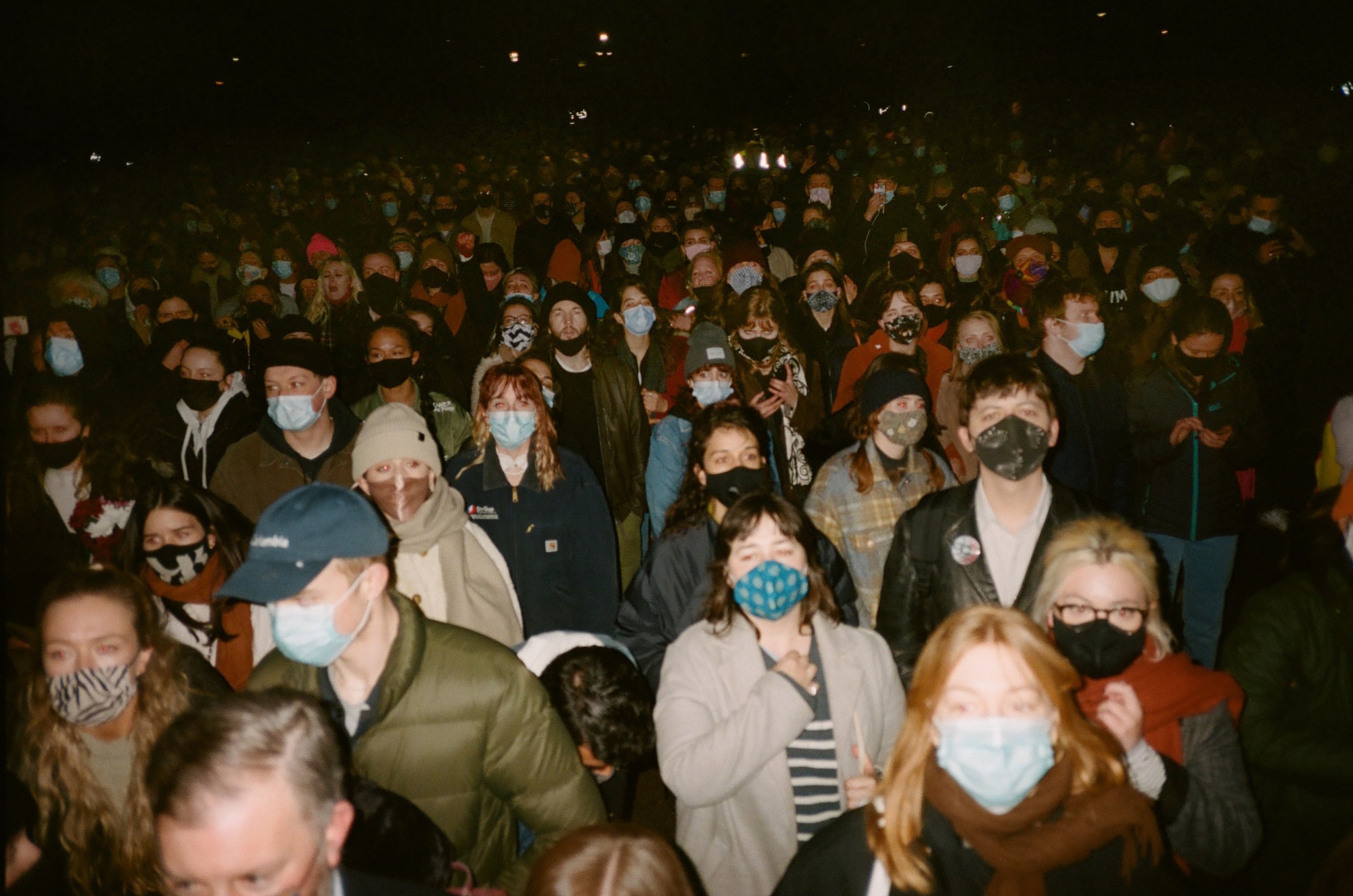
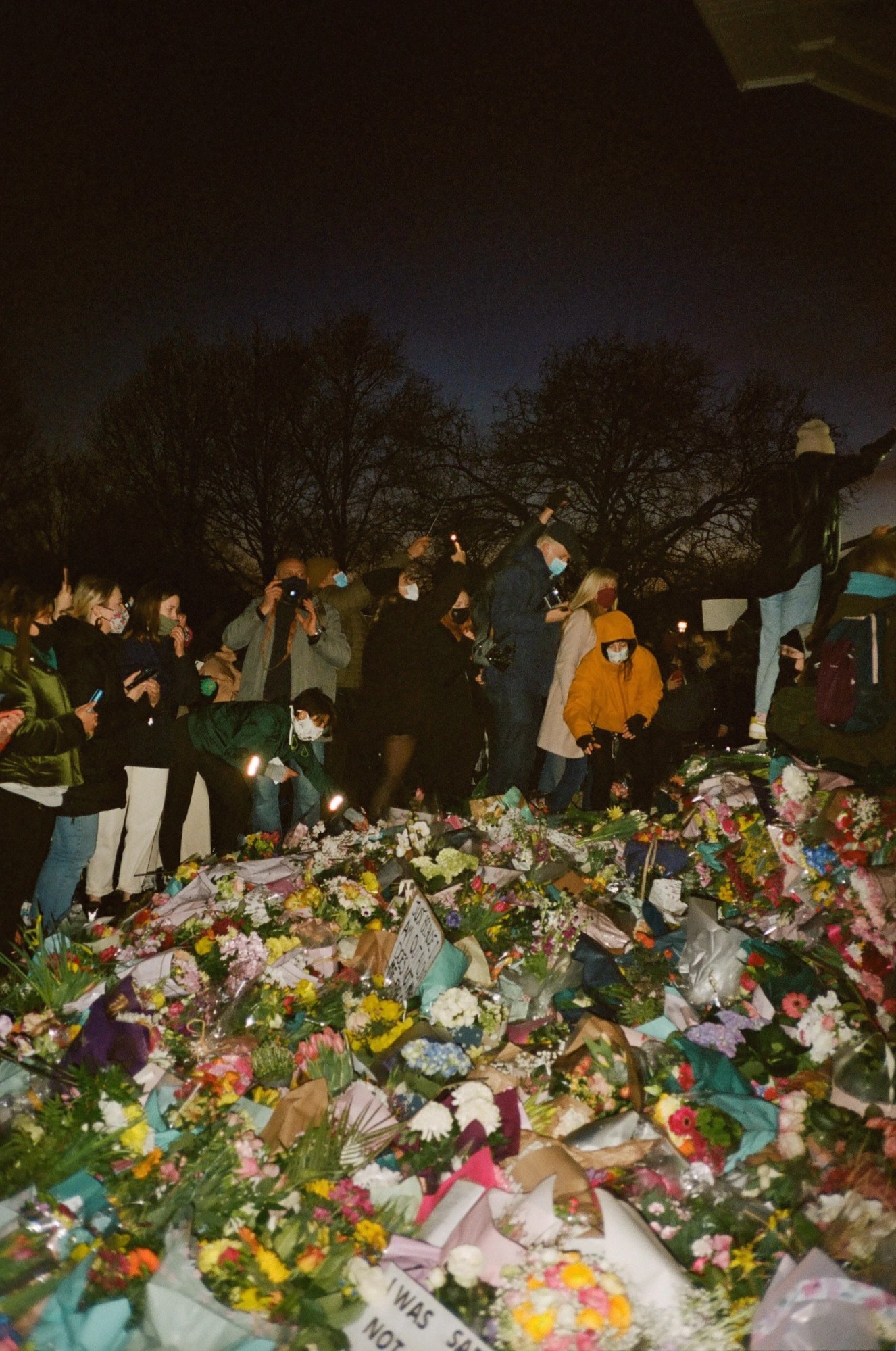
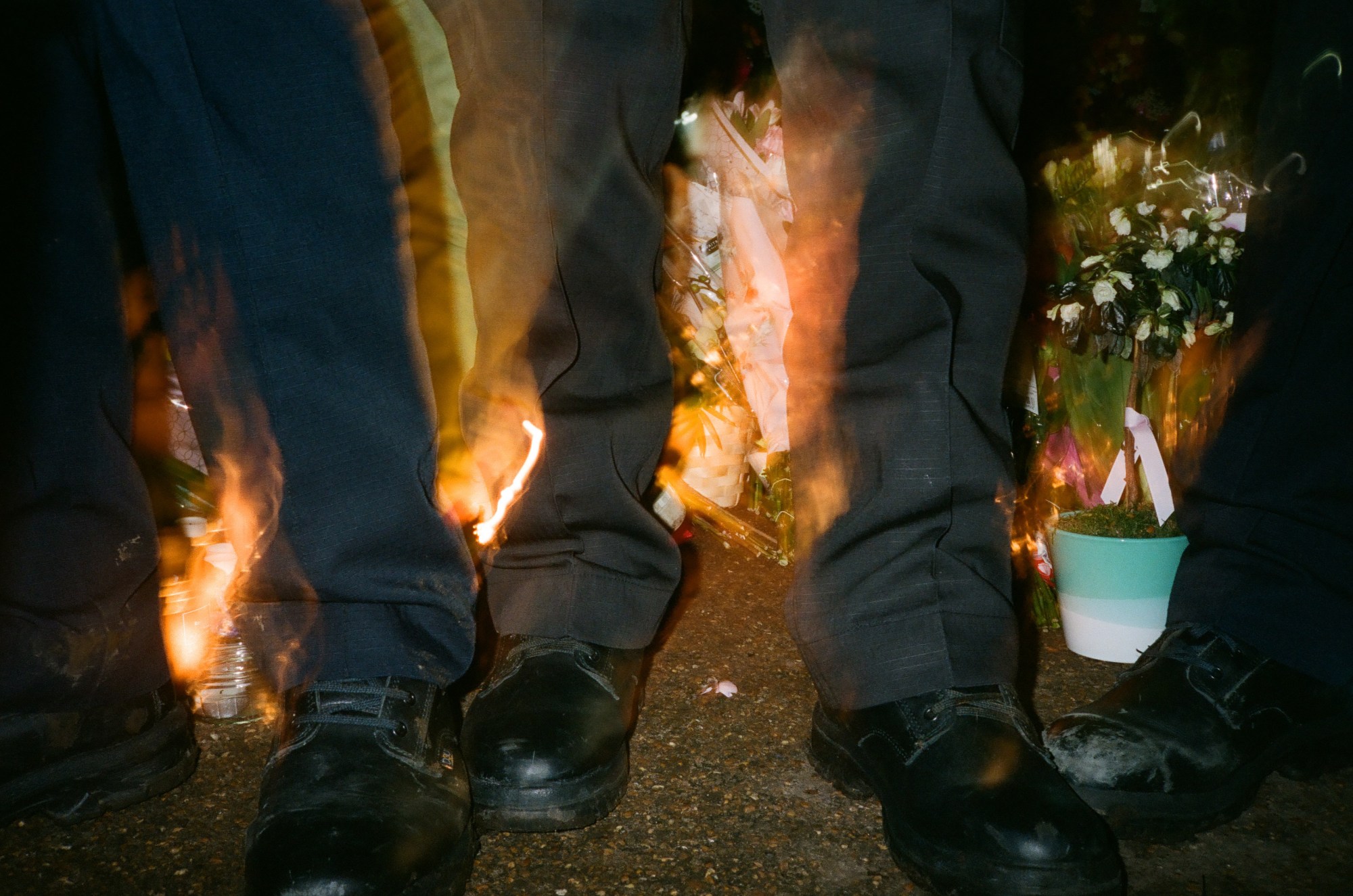
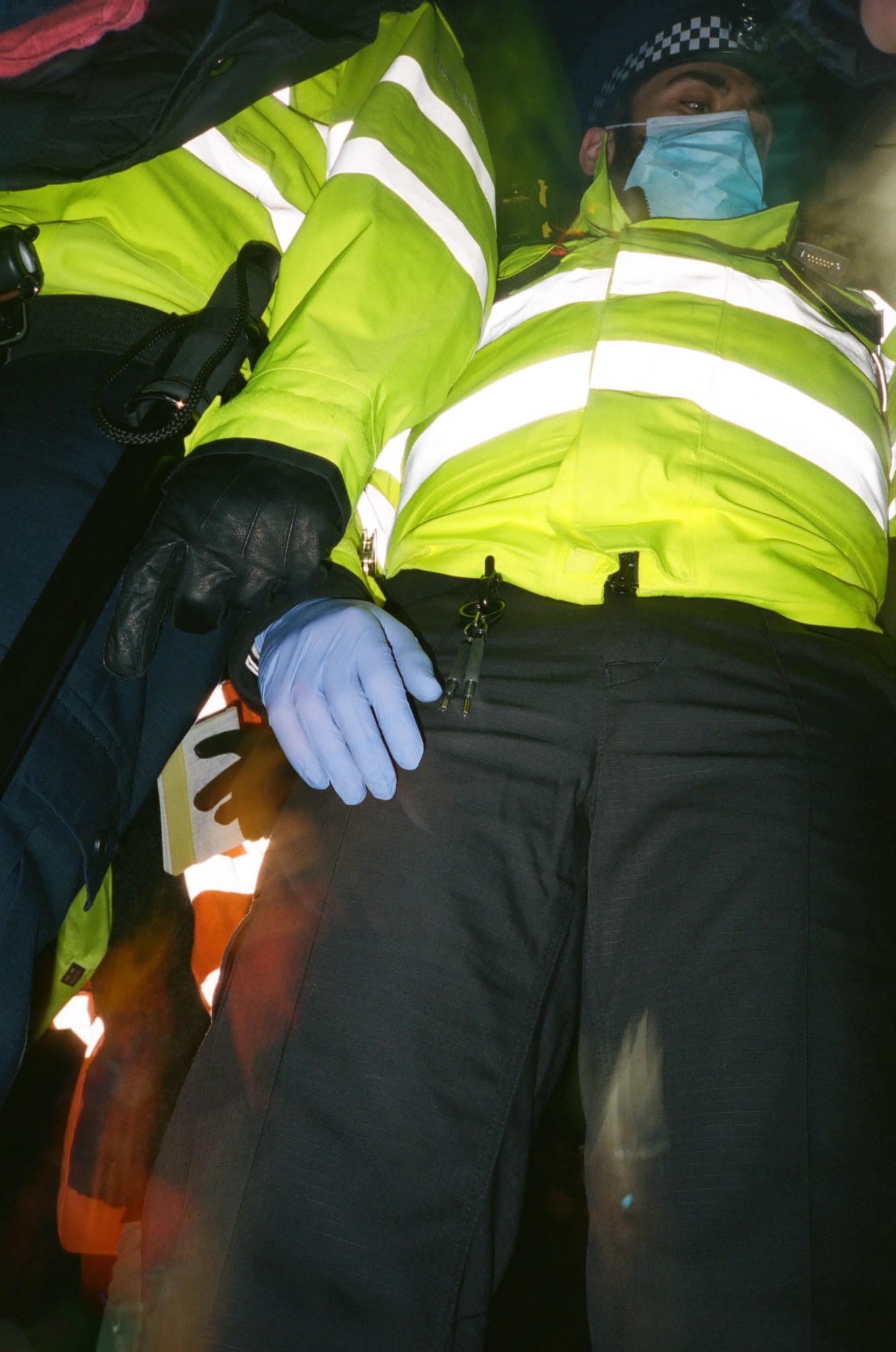
Credits
Photography Nora Nord
